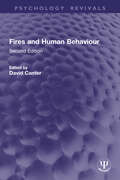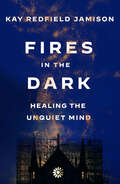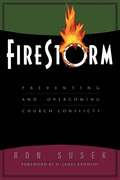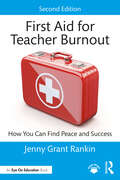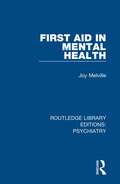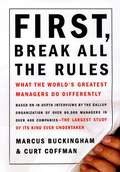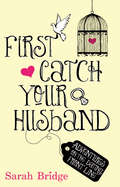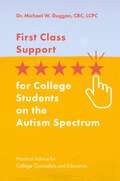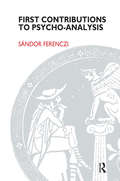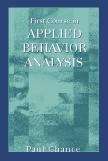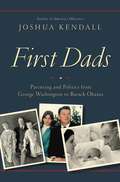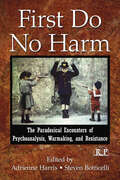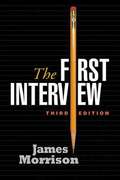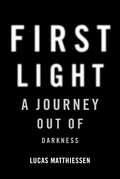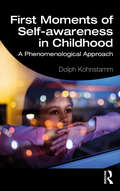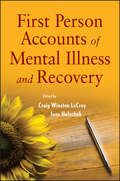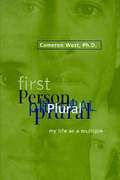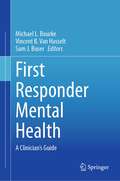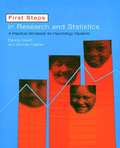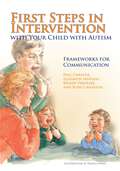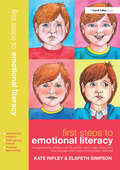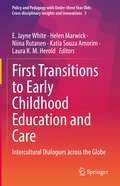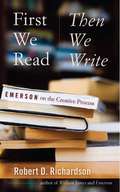- Table View
- List View
Fires and Human Behaviour: Second Edition (Psychology Revivals)
by David CanterThis second edition of Fires and Human Behaviour was originally published in 1990 and since the first edition in 1980 there continued to be considerable loss of life in small and large fires throughout the world. The most significant of these from a behavioural point of view was the Kings Cross underground station in 1988. This was a relatively small fire caused by inappropriate human actions.What appeared to remain timeless and of value ten years after the first edition was published were the details of what actually happens in fires and the psychological models that emerged from studying those details. This second edition was therefore edited to keep the original detailed case studies and to add information about some major incidents that had occurred since 1980.
Fires in the Dark: Healing the Unquiet Mind
by Kay Redfield JamisonA NEW YORKER BEST BOOK OF THE YEAR • The acclaimed author of An Unquiet Mind considers the age-old quest for relief from psychological pain and the role of the exceptional healer in the journey back to health.&“To treat, even to cure, is not always to heal.&” In this expansive cultural history of the treatment and healing of mental suffering, Kay Jamison writes about psychotherapy, what makes a great healer, and the role of imagination and memory in regenerating the mind. From the trauma of the battlefields of the twentieth century, to those who are grieving, depressed, or with otherwise unquiet minds, to her own experience with bipolar illness, Jamison demonstrates how remarkable psychotherapy and other treatments can be when done well.She argues that not only patients but doctors must be healed. She draws on the example of W.H.R. Rivers, the renowned psychiatrist who treated poet Siegfried Sassoon and other World War I soldiers, and discusses the long history of physical treatments for mental illness, as well as the ancient and modern importance of religion, ritual, and myth in healing the mind. She looks at the vital role of artists and writers, as well as exemplary figures, such as Paul Robeson, who have helped to heal us as a people.Fires in the Dark is a beautiful meditation on the quest and adventure of healing the mind, on the power of accompaniment, and the necessity for knowledge.
Firestorm: Preventing and Overcoming Church Conflicts
by D. Kennedy Ron SusekPractical suggestions on how to avoid and overcome the destructive interpersonal conflicts many churches have experienced with leaders, members, and pastors.
First Aid for Teacher Burnout: How You Can Find Peace and Success
by Jenny Grant RankinOffering clear strategies rooted in research and expert recommendations, the new edition of First Aid for Teacher Burnout empowers teachers to prevent and recover from burnout while finding success at work in a sustainable way. Each chapter explores a different common cause of teacher burnout and provides takeaway strategies and realistic tips. Chapter coverage includes fighting low morale, diminishing stress, streamlining grading, reducing workload, leveraging collaboration, using technology to your advantage, managing classroom behavior, advocating for support from your administration, securing the help of parents and community, and more. New in this edition, the author expands on discussion about teacher activism, using digital resources, as well as a wealth of tips throughout for those teaching virtually. Full of reflection exercises, confessions from real teachers, and veteran teacher tips, this accessible book provides easy-to-implement steps for alleviating burnout problems so you can enjoy peace and success in your teaching.
First Aid in Mental Health (Routledge Library Editions: Psychiatry #16)
by Joy MelvilleOriginally published in 1980, First Aid in Mental Health offers a clear, helpful and sympathetic guide to the nature of mental illness and the kinds of help and treatment available at the time. Joy Melville looks in particular at: warning signs, medical help, schizophrenia, anxiety and stress, depression, post-natal depression, anorexia, elderly mentally infirm, patient’s rights, treatment, and supplies not only a practical and sensible account of the nature and problems of mental illness, but also the reassurance that the sufferers and their families are not alone and help is available.
First Break All the Rules: What the World's Greatest Managers Do Differently
by Marcus Buckingham Curt Coffman"Finally, something definitive about what makes for a great workplace." - Harriet Johnson Brackey, Miami Herald
First Catch Your Husband: Adventures on the Dating Front Line
by Sarah BridgeSarah Bridge is smart, successful . . . and single. As a newspaper journalist, she has a hectic day job, a busy social life and is perfectly happy with both. But something – or someone – is missing. Embarking on a quest to find her soulmate, she tries everything: from speed-dating and wine-tasting to Scottish dancing and singles holidays, island-hopping and army assault courses to self-help books and fortune-telling. Whether climbing mountains in Morocco or swimming at midnight in the Caribbean, Sarah is on a mission to meet Mr Right. But will anything actually work? And how will she feel after putting herself, and her heart, out there? First Catch Your Husband is an entertaining, touching and thought-provoking account of life on the front line of dating. It’s an inspiring tale for anyone who’s ever been, or wanted to be, in love.
First Class Support for College Students on the Autism Spectrum: Practical Advice for College Counselors and Educators
by Michael W. DugganCollege students with autism can face many difficulties during the transition from high school to further education and beyond. Highlighting the various everyday issues that may arise, this book shares practical advice for supporting students on the autism spectrum and helping them to succeed not only academically, but also socially and emotionally. From supporting students with their relationships, to dealing with anxiety and managing independent living, this book covers a breadth of topics. It considers the impact of teaching expectations in higher learning on general adult life, and how to counsel students with autism on academic issues. The author also examines his many years of experience as a community college counselor, sharing the mistakes he has made and the lessons learned, to outline what makes a good counselor and how to take specific steps to ensure success for students with autism in all aspects of college life.
First Contributions to Psycho-analysis (Brunner-mazel Classics In Psycholoanalysis Ser. #No. 6)
by Sandor FerencziThis book is a collection of Ferenczi's early papers which secured him, in an amazingly short time, his prominent position among Freud's followers. Included here are several of the papers that now belong to the classics of psychoanalysis, such as: "Introjection and Transference", "On Obscene Words", "On Onasism: Stages in Development of the Sense of Reality" and "The Ontogenesis of the Interest in Money". In addition it contains Ferenczi's pioneer papers on impotence, homosexuality, paranoia, and symbolism.
First Course in Applied Behavior Analysis
by Paul ChanceFirst Course, as its title implies, is intended for students taking an introductory course in applied behavior analysis or related subject, such as behavior modification, behavior theory, or applications of learning. The emphasis of the text is on practical solutions to behavior problems, including problems encountered by parents, teachers, managers, guidance counselors, school psychologists, clinical psychologists, psychiatrists, speech therapists, nurses, physical and occupational therapists, and social workers. Any student whose work or daily activities will require interacting with people whose behavior is problematic should benefit from reading this text.
First Dads: Parenting and Politics from George Washington to Barack Obama
by Joshua KendallEvery president has had some experience as a parent. Of the 43 men who have served in the nation's highest office, 38 have fathered biological children and the other five adopted children. Each president's parenting style reveals much about his beliefs as well as his psychological make-up. James Garfield enjoyed jumping on the bed with his kids. FDR's children, on the other hand, had to make appointments to talk to him. In a lively narrative, based on research in archives around the country, Kendall shows presidential character in action. Readers will learn which type of parent might be best suited to leading the American people and, finally, how the fathering experiences of our presidents have forever changed the course of American history.
First Do No Harm: The Paradoxical Encounters of Psychoanalysis, Warmaking, and Resistance (Relational Perspectives Book Series)
by Adrienne Harris Steven BotticelliAt the outset of World War I - the "Great War" - Freud supported the Austro-Hungarian Empire for which his sons fought. But the cruel truths of that bloody conflict, wrought on the psyches as much as the bodies of the soldiers returning from the battlefield, caused him to rethink his stance and subsequently affected his theory: Psychoanalysis, a healing science, could tell us much about both the drive for war and the ways to undo the trauma that war inherently breeds, but its principles could just as easily serve the enemy's desires to inculcate its own brand of "truth." Even a century later, psychoanalysis can still be used as much for the justifications of warfare and propaganda as it is for the defiance of and resistance to those same things. But it is in the investigation of the motives and methods behind these uses that psychoanalysis proves its greatest strength. To wit, this edited collection presents published and unpublished material by analysts, writers, and activists who have worked at the front lines of psychic life and war from various stances. Set at a point of tension and contradiction, they illustrate the paradoxical relation of psychoanalysis as both a site of resistance and healing and a necessary aspect of warmaking, propaganda, and militarism. In doing so, we venture from the home front - from the trauma of returning veterans to the APA's own complicity in CIA "black sites" - across international borders - from the treatment of women in Latin American dictatorships to the resistance to occupation in Palestine, from mind control to an ethics of responsibility. Throughout, a psychoanalytic sensibility deconstructs the very opposition that it inhabits, and seeks to reestablish psychoanalysis as the healing discipline it was conceived to be.
First Exposure to a Second Language
by Zhaohong Han Rebekah RastThe initial state of learner spontaneous input processing in foreign language learning, as well as the extent to which this processing leads to intake, is of central importance to theoreticians and teachers alike. In this collection of original studies, leading experts examine a range of issues, such as what learners do when faced with a language they know little or nothing about, what factors appear to mediate beginning learners' processing of input, how beginners treat two types of information - form and meaning - in the input, and how adult cognition deals with stimulus frequency at this initial stage. This book provides a microscopic view on learners' processing of foreign language input at the early stages of learning, and evaluates a variety of methodological options within the context of ab initio processing of foreign languages other than English, such as German, Korean, Norwegian, Polish, and Spanish.
First Interview, Third Edition
by James Morrison David DunnerThis indispensable clinical guidebook describes and illustrates how to conduct a successful diagnostic mental health interview. James Morrison details effective methods for posing clinical questions; what the clinician should ask to obtain complete, accurate information; and how to select the best strategy to meet any clinical situation. Throughout, the author interweaves research on what works in mental health interviewing along with fresh insights on how to build rapport and enhance patient motivation. New to This Edition Chapter on troubleshooting. Semi structured interview with permission to photocopy.
First Language Acquisition
by Clark Eve V.How do young children learn language? When does this process start? What does language acquisition involve? Children are exposed to language from birth, surrounded by knowledgeable speakers who offer feedback and provide extensive practice every day. Through conversation and joint activities, children master the language being used around them. This fully revised third edition of Eve V. Clark's bestselling textbook offers comprehensive coverage of language acquisition, from a baby's first sounds to a child's increasing skill in negotiating, explaining and entertaining with language. This book, drawing together the most recent findings in the field, and illustrated with examples from a wide range of experimental and observational studies, including the author's own diary observations, presents an essential and comprehensive guide to first language acquisition. It will be fascinating reading for students of linguistics, developmental psychology, and cognitive science.
First Light: A Journey Out of Darkness
by Lucas MatthiessenA deeply felt literary memoir of one man&’s journey to redemption through vision loss, alcoholism, and the burden of a family legacy. Born to the author Peter Matthiessen, young Lucas traveled through life believing himself a disappointment to his famous father. From an early age, Lucas was exposed to the fanciful ideas of his parent&’s group of renowned bohemians as well as to their addictive pastimes. Within the shadow of his father&’s professional success came another source of darkness—the deterioration of Lucas&’s vision from retinitis pigmentosa. With blindness looming imminently, Lucas spirals downward, unsure of how to turn his degree in English Literature into a job and relying more and more on alcohol. As Lucas&’ drinking and eyesight worsen, so too do his interpersonal relationships and first career in publishing.First Light is a memoir of loss and learning. By pulling himself out of addiction and accepting that he will lose his sight completely, Lucas transitions from being &“the son of&” someone famous to an individual with his own strong sense of self. Despite continued personal tragedies, Lucas develops a second sight that is aimed inward, laying his triumphs and failures bare.With great honesty, Lucas Matthiessen creates a vivid portrait of self-destruction and rebirth, which is, above all, a vision of hope.
First Moments of Self-awareness in Childhood: A Phenomenological Approach
by Dolph KohnstammThis thought-provoking volume explores the phenomenon of childhood experiences of sudden moments of self-awareness. Locating them as meaningful developmental events, it draws on, and is illustrated by, detailed analysis of individuals’ narratives of inner experience and recollections of childhood. Uniquely highlighting the relevant writings of literary figures such as C.G. Jung, Vladimir Nabokov, Ian McEwan, and Henning Mankell, Dolph Kohnstamm explores the construction of selfhood, and the effects it has on time, space, and the other. Together with a chapter assessing the role of the default brain network in the development of self-conception, it both supports and challenges theories of development. First Moments of Self-awareness in Childhood offers a new conception of children’s development of a sense of individuality and will be of great interest to scholars and students of psychology, philosophy, and sociology.
First Person Accounts Of Mental Illness And Recovery
by Craig Winston Lecroy Jane HolschuhIn First Person Accounts of Mental Illness, case studies of individuals experiencing schizophrenia, mood disorders, anxiety disorders, personality disorders, substance use disorders, and other mental ailments will be provided for students studying the classification and treatment of psychopathology. All of the cases are written from the perspective of the mentally ill individual, providing readers with a unique perspective of the experience of living with a mental disorder. "In their book First Person Accounts of Mental Illness and Recovery, LeCroy and Holschuh offer the student, researcher, or layperson the intimate voice of mental illness from the inside. First Person Accounts of Mental Illness and Recovery is a wonderful book, and it is an ideal, even indispensable, companion to traditional mental health texts. I am grateful that they have given the majority of this book to the voices that are too often unheard. " --John S. Brekke, PhD, Frances G. Larson Professor of Social Work Research, School of Social Work, University of Southern California; Fellow, American Academy of Social Work and Social Welfare "This is absolutely a must-read for anyone who has been touched by someone with a mental illness, whether it be personal or professional. It is imperative that this book be required reading in any course dealing with psychopathology and the DSM, whether it be in psychology, psychiatry, social work, nursing, or counseling. " --Phyllis Solomon, PhD, Professor in the School of Social Policy & Practice and Professor of Social Work in Psychiatry at the University of Pennsylvania A unique volume of first person narratives written from the perspective of individuals with a mental illness Drawing from a broad range of sources, including narratives written expressly for this book, self-published accounts, and excerpts from previously published memoirs, this distinctive set of personal stories covers and illustrates a wide spectrum of mental disorder categories, including: Schizophrenia and other psychotic disorders Mood disorders Anxiety disorders Personality disorders Substance-related disorders Eating disorders Impulse control disorders Cognitive disorders Somatoform disorders Dissociative disorders Gender identity disorders Sleep disorders Disorders usually first diagnosed in infancy, childhood, or adolescence Reflecting a recovery orientation and strengths-based approach, the authentic and relevant stories in First Person Accounts of Mental Illness and Recovery promote a greater appreciation for the individual's role in treatment and an expansion of hope and recovery.
First Person Plural: My Life As a Multiple
by Cameron West"What the hell's happening to me? I feel possessed. I'm talking gibberish in the mirror and somebody else's voice is coming out of my mouth!" Cameron West was in his thirties, a successful businessman, happily married and the father of a young son, when he spoke these words. The "voice" belonged to Davy. the first of twenty-four distinct personalities to emerge over a period of several months and recount memories of horrific abuse that had been kept secret from West all his life. There was eight-year-old Clay, tense and stuttering; twelve-year-old Dusty, gentle and kind, but disappointed to find herself in the body of a middle-aged man: Bart, lightheaded and supportive; Leif, with his incredible focus and drive, who sometimes overwhelmed West with his demands, and nineteen other personalities-all with distinct characteristics, mannerisms, and memories. In first Person Plural, West offers a poignant account of his efforts to understand the workings of his fragmented mind and to heal his damaged spirit as he desperately hangs on to the slender thread that connects him to his wife, Rikki, his son, Kyle, and some semblance of a regular life. In addition to a spellbinding story. West provides rare and unprecedented insight into the fascinating workings of the mind of a multiple and his alters' coexistence with one another and with those "outside." heart wrenching. humorous, and ultimately hopeful. First Person Plural is a story that will make you stand in awe of the power of the mind to protect itself and cheer for West as he struggles to gain control of his life.
First Responder Mental Health: A Clinician's Guide
by Vincent B. Van Hasselt Michael L. Bourke Sam J. BuserThis edited volume provides mental health clinicians with knowledge to effectively work with current and former first responders. It provides strategies on how to best develop and adapt clinical assessment procedures and therapeutic interventions to better meet the unique needs found in these settings. Chapters synthesize existing literature to introduce the reader to profession-specific factors issues that exist in these contexts and describe the challenges that can present when working with police, firefighters, EMS, emergency communications operators, crime scene investigators, and corrections personnel. The book covers a range of topics that clinicians and trainees need to understand the relevant issues, develop effective treatment plans, and deliver appropriate psychological services in public safety settings. First Responder Mental Health: A Clinician’s Guide will be essential reading for mental health professionals working with first responders, as well as those in training.
First Steps In Research and Statistics: A Practical Workbook for Psychology Students
by Dennis Howitt Duncan CramerFirst Steps in Research and Statistics is a new, very accessible approach to learning about quantitative methods. No previous knowledge or experience is assumed and every stage of the research process is covered.Key topics include:* Formulating your research questions* How to choose the right statistical test for your research design* Important research issues, such as questionnaire design, ethics, sampling, reliability and validity* Conducting simple statistics to explore relationships and differences in your data* Using statistics to explore relationships and differences in your data* Writing up your research report and presenting statistics Simple and helpful worksheets and flow diagrams guide you through the research stages. Each chapter contains exercises with answers to check whether you've understood.
First Steps in Intervention with Your Child with Autism: Frameworks for Communication
by Phil Christie Elizabeth Newson Pamela Venus Susie Chandler Wendy PrevezerOne of the major difficulties for children with autism is in developing communication and language. The earlier this problem is addressed, the more effectively these skills can be improved. Inspired by research and clinical practice, this book addresses communication and language development of children with autism, from teaching non-verbal communication such as pointing, to moving towards spoken language. This book champions initial intervention with children at an early stage of communication, but the many practical ideas and strategies can also be usefully applied to children of school age, if they are at an early stage of communication. First Steps in Intervention With Your Child With Autism is perfect for parents looking to understand their child better and, in turn, help improve their child's development and communication. This will also be a useful reference for all professionals working to support families with a child on the autism spectrum.
First Steps to Emotional Literacy: A programme for children in the FS & KS1 and for older children who have language and/or social communication difficulties
by Kate RipleyKate Ripley’s work in the topical area of Emotional Literacy has shown that children must first learn to discriminate and label their own emotions before they can focus on understanding other people's. This comprehensive programme is designed to assist early years practitioners help children to achieve these first important steps, the pack consists of: theoretical rationale – long and short version how the programme fits within the current legislative framework baseline assessment details pratical strategies to support the programme evaluation from pilot study bibliography and recommended materials. In addition to the book there is a CD-ROM containing a twenty minute video film showing behaviour to be addressed and intervention in action, a demonstration in powerpoint to show to colleagues and stories to use for baseline assessment.
First Transitions to Early Childhood Education and Care: Intercultural Dialogues across the Globe (Policy and Pedagogy with Under-three Year Olds: Cross-disciplinary Insights and Innovations #5)
by E. Jayne White Niina Rutanen Helen Marwick Katia Souza Amorim Laura K. M. HeroldThis book brings together the work of researchers from around the globe around the topic of children’s first transitions to early care and education. It discusses political and sociocultural contexts, theories, and ideologies around the theme. The book offers perspectives and findings on adult expectations around a child’s first transition, infant emotional experiences, the role of space, the part that key objects play in infant transitions, and the role of time. It also discusses age of first entry, routines and rhythms of the institutions, and the future expectations of those involved. The book takes a culturally responsive approach, revealing at times striking commonalities across countries, and at other points distinct differences in the people, environments, orienting pedagogies, and policies that inform an infant’s transition into care.
First We Read, Then We Write: Emerson on the Creative Process
by Robert D. Richardson[From the dust jacket:] "Writing was the central passion of Emerson's life. While his thoughts on the craft are well developed in "The Poet," "The American Scholar,"Nature, "Goethe," and "Persian Poetry," less well known are the many pages in his private journals devoted to the relationship between writing and reading. Here, for the first time, is the Concord Sage's energetic, exuberant, and unconventional advice on the idea of writing, focused and distilled by the preeminent Emerson biographer at work today. Emerson advised that "the way to write is to throw your body at the mark when your arrows are spent. "First We Read, Then We Writecontains numerous such surprises-from "every word we speak is million-faced" to "talent alone cannot make a writer"-but it is no mere collection of aphorisms and exhortations. Instead, in Robert Richardson's hands, the biographical and historical context in which Emerson worked becomes clear. Emerson's advice grew from his personal experience; in practically every moment of his adult life he was either preparing to write, trying to write, or writing. Richardson shows us an Emerson who is no granite bust but instead is a fully fleshed, creative person disarmingly willing to confront his own failures. Emerson urges his readers to try anything-strategies, tricks, makeshifts-speaking not only of the nuts and bolts of writing but also of the grain and sinew of his determination. Whether a writer by trade or a novice, every reader will find something to treasure in this volume. Fearlessly wrestling with "the birthing stage of art," Emerson's counsel on being a reader and writer will be read and reread for years to come."
